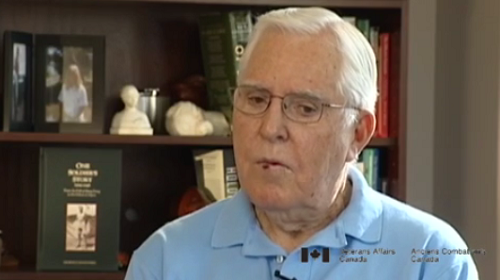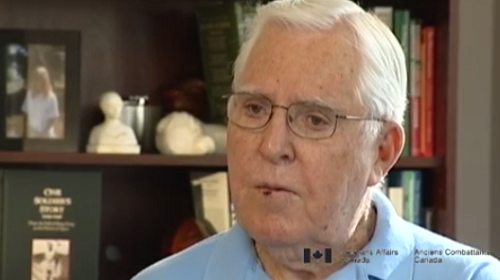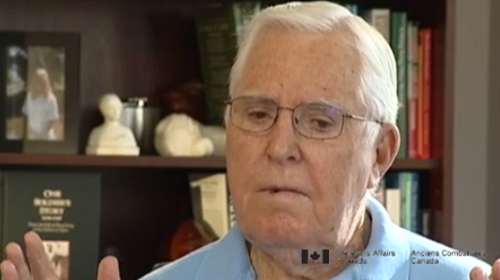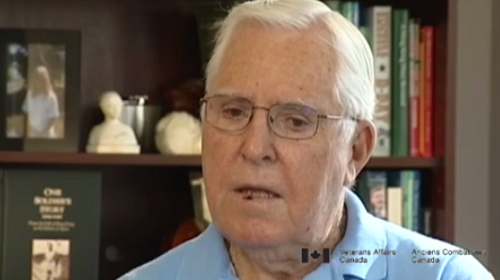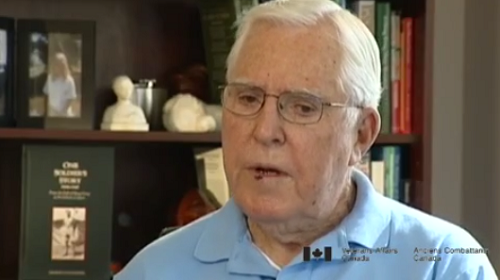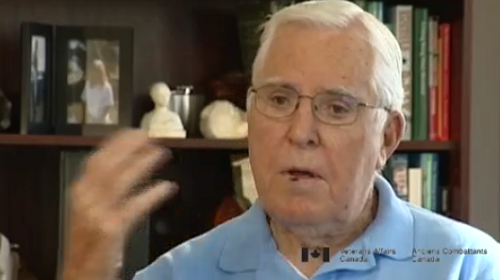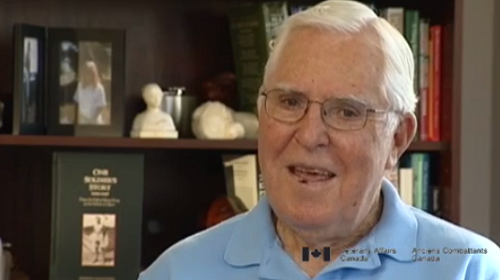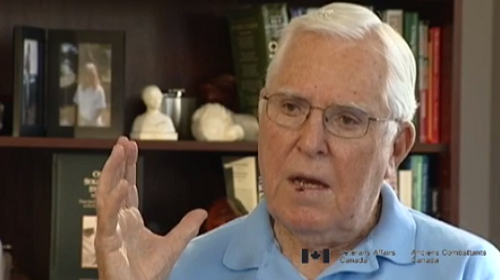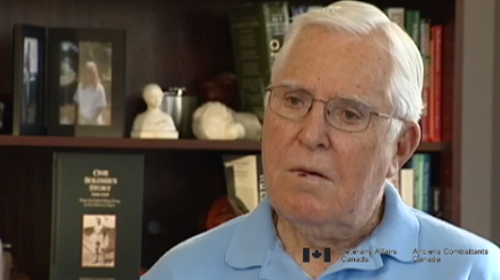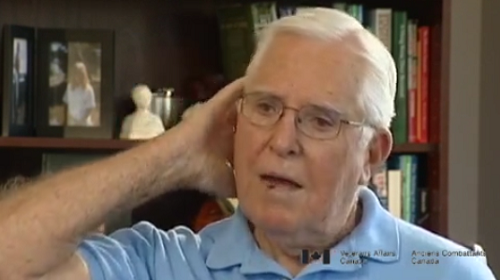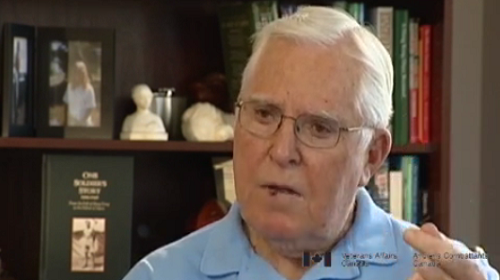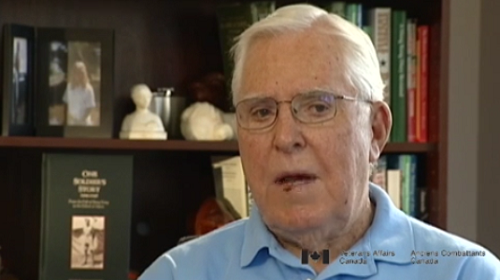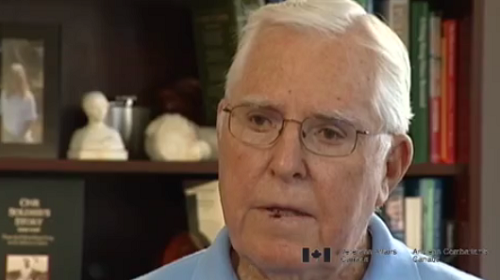We Couldn’t Reveal the Radio
Heroes Remember
We Couldn’t Reveal the Radio
Transcript
I couldn't reveal the radio.
The Japanese would sooner or later
pick up the chatter if we began to talk about it.
We couldn't risk Ralph Bunch and the radio.
We would all be executed, those involved
and we'd lose any contact with the outside world.
And that outside world was very important, so I would pass
the news on by saying my foreman told me blah, blah, blah.
I would disguise but only when I thought
my men needed a lift and a support
so I had to be very careful.
But this day we heard on the news that although
the Japanese military were refusing to surrender,
after the bomb, the second bomb was dropped
the Emperor had decided that he was going to speak
to the Japanese people for the first time
in the history of Japan by radio.
Now the fact that the Japanese military tried to prevent that,
is unknown to most of us but the Japanese army revolted,
tried to prevent it but he managed to get it out to a
favourable radio station so that it was broadcast.
Now that day at one hour,
we knew it was going to be at twelve noon.
At eleven o'clock the captain of the guard at the mine
told me to assemble all of the Canadians
and he told us he was going to take us down to a
disused part of the mine, an area that had been mined out
that was way below the surface.
And when I said, “Well, why?” He said,
“None of your business, you do as you're told.”
So we were all assembled in one portion of the mine.
Now I knew that if that mine was wired with explosives,
that all they had to do was push the plunger
and we would be buried a mile underground
forever under millions of tons of rock
and we would disappear off the face of the earth
and I thought that's probably what they are going to do.
But on the other hand, maybe the Emperor
will tell them not to do that and what are the alternatives.
Disobedience would lead to execution right there.
The captain of the guard was very upset,
he didn't know what was going on
and in a very unstable frame of mind
so we took the risk and we went down
without any difficulty and at the end of an hour,
we came to the surface to find out that the Japanese were in tears.
I knew immediately that
the Emperor had declared that he had surrendered.
All I had to do was look at what I saw around me.
I could see them in tears.
Tears streaming down their face sobbing
about this awful news that a war they were sure
they were going to win had been lost.
Then the guard commander said to me,
“Get your men together, we're going back to the camp.”
That was a surprise. So I said fine.
Which meant we had to go back to wherever
we were working pick up our jacket and anything,
any of our possessions and bring them to the
surface of the mine to be marched back to the camp.
When I went back to where I was working,
my foreman who had been sympathetic to me said,
“Honcho, you go Canada now.”
Then I knew that the Emperor had declared the war ended
but the prisoners were not to be executed.
And he did in his speech.
So I said to the guard commander
when we were ready to march back, “This is unusual.”
He said, “Mind your own business!
Shut up! Back to the camp.”
So we went back to the camp, we were counted
and we went to our barracks,
we had the afternoon off; unheard of.
The next morning, the regular program,
we were paraded, all was counted,
everybody was ready to go to work
and the camp commander said,
“No work today.”
Description
Mr. MacDonell describes the days surrounding the surrender of the Japanese.
George MacDonell
Mr. MacDonell was born in Edmonton, Alberta on August 15, 1922. He lost his parents at an early age and was raised by his uncle and family. In 1939, he ran away from home and made the decision to join the army. Mr. MacDonell served as Company Sergeant Major during the Battle of Hong Kong and in 1941 was captured and was a POW for four years. Post-military, Mr. MacDonell earned his Bachelor of Arts at the University of Toronto and went on to have a successful business career. Mr. MacDonell is very active in his city and very proud of having served. Mr. MacDonell is retired and resides in Toronto, Ontario.
Meta Data
- Medium:
- Video
- Owner:
- Veterans Affairs Canada
- Duration:
- 4:53
- Person Interviewed:
- George MacDonell
- War, Conflict or Mission:
- Second World War
- Battle/Campaign:
- Hong Kong
- Branch:
- Army
- Units/Ship:
- Royal Rifles of Canada
- Occupation:
- Vehicle Technician
Related Videos
- Date modified:




